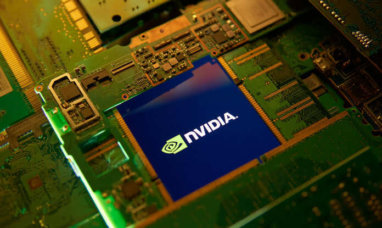Nvidia (NASDAQ:NVDA) saw its stock pull back slightly on Thursday after briefly surpassing a $3 trillion market cap. The stock opened at $1,240.09 per share but dipped around 0.4% in early trading.
The surge on Wednesday propelled Nvidia past Apple (NASDAQ:AAPL), making it the second-most-valuable company in the U.S. stock market, behind Microsoft (NASDAQ:MSFT). This rally was part of a broader tech stock gain, driven by softer U.S. economic data and a decline in Treasury yields, fueling optimism that the Federal Reserve might cut rates as early as July.
Nvidia has been at the forefront of investor enthusiasm for artificial intelligence, which surged with OpenAI’s release of ChatGPT in late 2022. The stock is up over 140% this year and 200% over the last year, with a staggering 3,300% gain over the past five years. In comparison, the Nasdaq has gained 14%, 29%, and 126% over the same periods, respectively.
The recent rally follows an announcement by CEO Jensen Huang at an industry conference, revealing plans to release a high-powered version of its Blackwell chip, called Blackwell Ultra, in 2025, and a new AI chip platform, Rubin, in 2026. An Ultra version of Rubin will debut in 2027.
Nvidia remains the go-to supplier for AI chips and integrated software for tech giants such as Amazon (NASDAQ:AMZN), Google (NASDAQ:GOOG), Meta (NASDAQ:META), Microsoft, and Tesla (NASDAQ:TSLA), powering their cloud-based AI offerings and internal AI models.
In the first quarter, Nvidia reported adjusted earnings per share of $6.12 on revenue of $26 billion, marking increases of 461% and 262%, respectively, from the same period last year. The Data Center segment saw a revenue increase of 427% year-over-year to $22.6 billion, making up 86% of the company’s total revenue for the quarter. Meanwhile, the gaming segment generated $2.6 billion in revenue.
Nvidia also announced a 10-for-1 stock split on June 7 and an increase in its dividend from $0.04 per share to $0.10 per share.
However, Nvidia faces competition from AMD (NASDAQ:AMD) and Intel (NASDAQ:INTC), which are developing their own AI chips. AMD plans to launch its MI325X and MI350 in 2024 and 2025, respectively, and the next-generation MI400 AI accelerator platform in 2026. Intel’s Gaudi 2 and Gaudi 3 AI accelerators aim to offer competitive pricing.
Nvidia is also dealing with competition from its own customers, as companies like Amazon, Google, and Microsoft work to reduce their reliance on Nvidia’s chips to save on capital expenditures.
Despite these challenges, Nvidia continues to dominate the AI space and is expected to maintain its leading position for the foreseeable future.
Featured Image: Wikipedia















